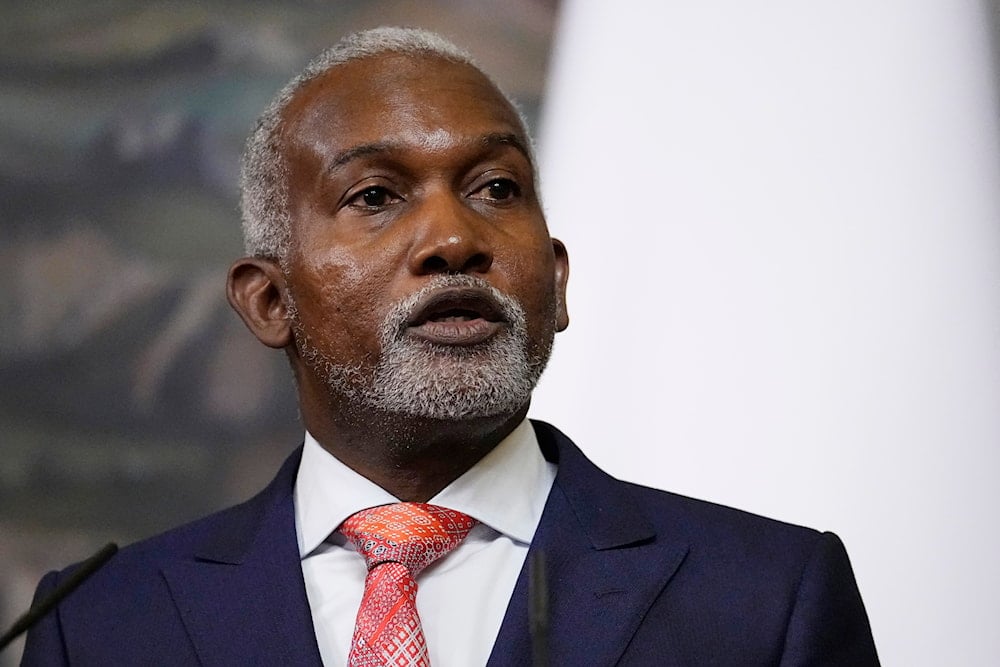Nigeria rejects Trump religious persecution claims, cites constitution
Nigerian Foreign Minister Yusuf Tuggar emphasizes in Berlin that Nigeria's constitution guarantees religious freedom, dismissing claims of government-backed Christian persecution amid US warnings.
-

Nigerian Foreign Minister Yusuf Tuggar speaks during a joint news conference with Russian Foreign Minister Sergey Lavrov following their talks in Moscow, Russia, Wednesday, March 6, 2024 (AP)
Nigeria's constitution makes it impossible for the state to be involved in religious persecution, Nigerian Foreign Minister Yusuf Tuggar stated on Tuesday.
Tuggar's statement came in response to a question regarding a warning from US President Donald Trump, who suggested the possibility of swift military action in Nigeria if the country fails to prevent the killing of Christians by armed groups, according to Reuters.
Speaking in Berlin alongside his German counterpart, Annalena Baerbock, Tuggar pointed to "his country's constitutional commitment to religious freedom and the rule of law," stating, "This demonstrates the impossibility of any religious persecution being supported in any way by the government of Nigeria at any level, be it federal, state, or local."
Trump threatens Nigeria using protecting Christians as pretext
US President Donald Trump announced on November 3 that his administration would immediately halt all US aid to Nigeria, citing what he called the “mass slaughter of Christians” in the country. He warned that any US military action would be “decisive", saying that if troops were sent in, they would “go in with full force to completely eradicate the terrorists.”
Following his statement, the US State Department re-designated Nigeria as a “Country of Particular Concern” under the International Religious Freedom Act, allowing Washington to impose sanctions or restrict assistance. Trump also said he had ordered the Pentagon to begin planning for potential action, though he offered no clear outline of what that would involve.
In Abuja, the Nigerian presidency responded by saying that while the country would welcome US support in combating terrorism, any cooperation must “respect Nigeria’s sovereignty and territorial integrity.” Presidential advisor Daniel Bwala noted that the government remained open to dialogue, adding that Trump’s rhetoric should not be taken as a formal policy shift.
Officials also pushed back against Trump’s framing of the violence as a targeted campaign against Christians. They stressed that both Christians and Muslims have suffered in attacks carried out by extremist groups such as Boko Haram and ISWAP, as well as in farmer–herder clashes across the country.
Trump’s Nigeria claims blur line between faith, conflict
Trump’s claims of a “mass slaughter of Christians” in Nigeria stem largely from pressure by US lawmakers and advocacy groups who have for years accused Abuja of turning a blind eye to anti-Christian violence. Figures like Senator Ted Cruz and members of the US Commission on International Religious Freedom have repeatedly alleged that tens of thousands of Christians have been killed since 2009 and thousands of churches destroyed, though these numbers remain unverified.
The other factor shaping Trump’s comments is the ongoing wave of violent attacks in northern and central Nigeria, where armed groups, including Boko Haram, ISWAP, and criminal militias, have carried out raids, kidnappings, and bombings for over a decade.
Some of these attacks have indeed targeted Christian villages, churches, and clergy, feeding reports of faith-based persecution. However, analysts note that Muslim communities have also suffered heavily, with entire towns in the northeast displaced or destroyed by the same insurgent groups.

 3 Min Read
3 Min Read








